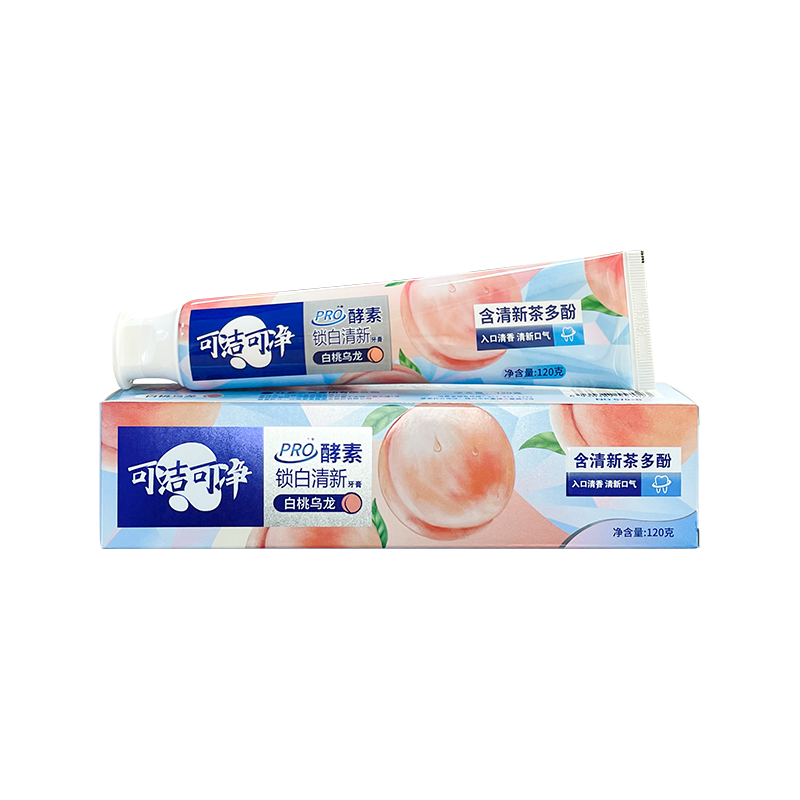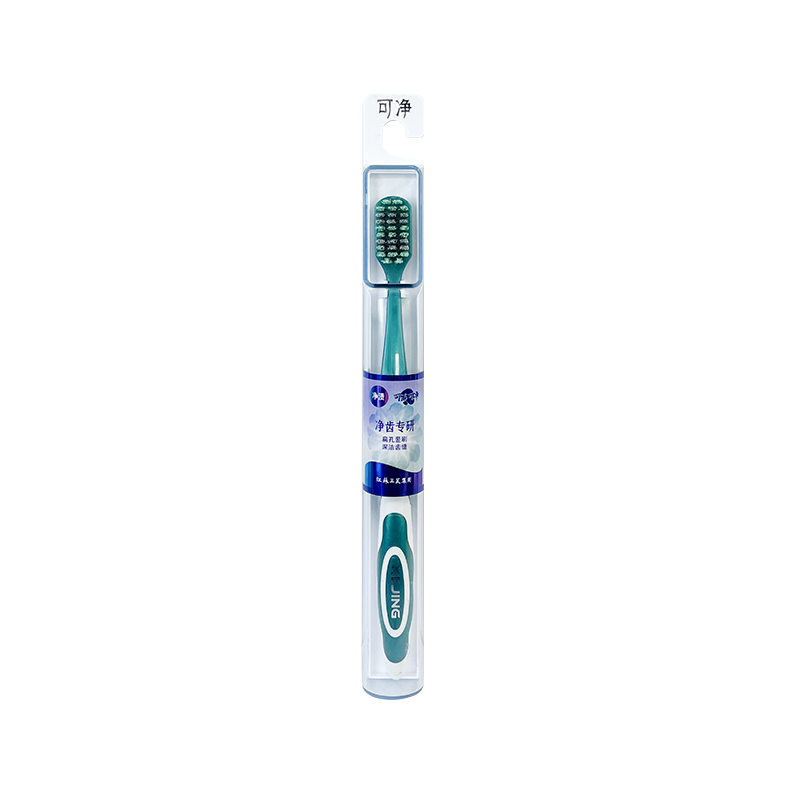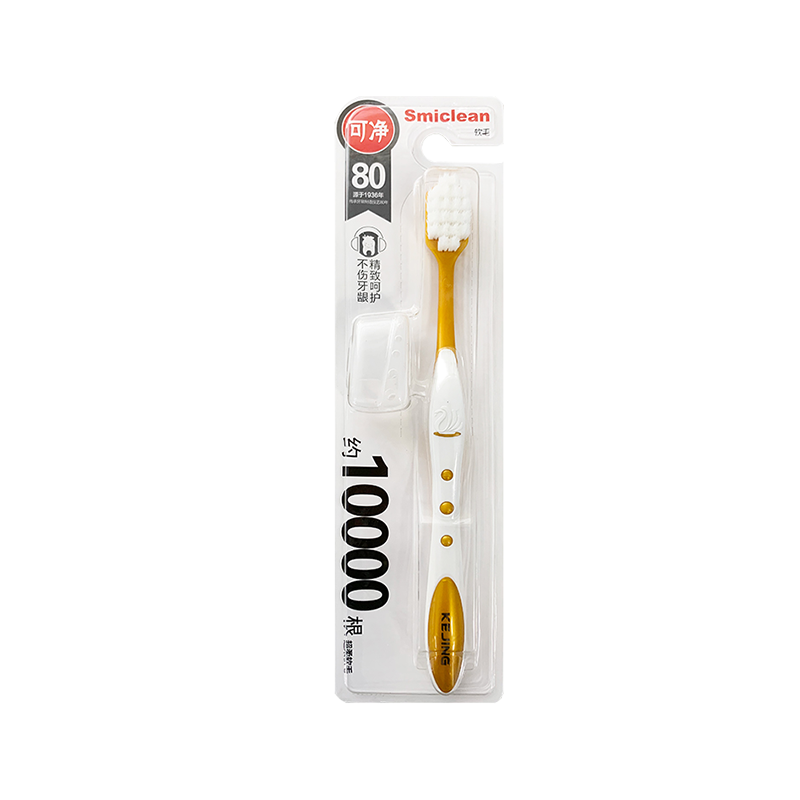Can Sensitive Toothpaste Really Repair Tooth Enamel or Nerve Exposure?
With the improvement of people's living standards and the enhancement of oral health awareness, more and more people are beginning to pay attention to tooth sensitivity. The "sour, soft and painful" reaction of teeth to hot and cold, sweet and sour foods often comes from the wear of tooth enamel or exposure of dentin, and even in severe cases, it causes direct stimulation of nerve endings. Anti-sensitive toothpaste on the market is a popular product that provides relief for such problems.
1. What is the nature of tooth sensitivity?
Tooth sensitivity (dentin hypersensitivity) is usually caused by the exposure of the dentin layer to the external environment, resulting in the transmission of hot and cold, sweet and sour or mechanical stimulation to the tooth nerve, resulting in an instant tingling sensation. The main reasons include:
Enamel wear: Overbrushing, biting hard objects, using abrasive toothpaste, etc. will cause the surface enamel to become thinner or even fall off;
Gum recession: Exposure of the root surface and dentin;
Tooth cracks or caries: Exposure of dentin or pulp tissue;
Temporary sensitivity after tooth bleaching or scaling.
Once the enamel is damaged, it cannot be regenerated. When the dentin layer is exposed, the dentinal tubules inside it will directly transmit external stimuli to the pulp nerves.
2. What is the working principle of anti-sensitive toothpaste?
Anti-sensitive toothpaste is not a real "curing" drug, but a functional care product. Its main function is to relieve stimulus conduction, strengthen surface protection, and reduce pain sensitivity.
The two major mechanisms of action are as follows:
1. Tubule Occlusion
Certain ingredients in anti-sensitive toothpaste (such as potassium nitrate, strontium chloride, fluoride, hydroxyapatite, etc.) can form tiny deposits on the surface of teeth, block the dentinal tubule channels, and block the transmission of external stimuli.
Representative ingredients:
Strontium chloride: simulates calcium ion deposition and blocks dentinal tubules;
Fluoride (such as sodium fluoride, sodium monofluorophosphate): improves the acid resistance of enamel;
Nano-HAp: can fill tiny defects and form a protective layer similar to enamel.

2. Nerve Desensitization
Some anti-allergic ingredients such as potassium nitrate can inhibit the excitability of dental pulp nerve endings and reduce pain.
Potassium nitrate working mechanism: Potassium ions penetrate into the vicinity of dental nerve cells, changing the conduction ability of nerve signals, thereby reducing excessive response to external stimuli.
3. Can anti-sensitive toothpaste really "repair" tooth enamel?
This is a relative question, and several key points need to be clarified:
Can achieve a certain degree of "functional repair"
Some anti-sensitive toothpastes contain similar enamel ingredients (such as nano-hydroxyapatite, fluoride, etc.), which can form a protective layer on the surface of tooth enamel, act as a physical barrier and remineralization, and have a relieving and strengthening effect on slightly worn areas.
Cannot reverse severe enamel damage
Natural enamel is formed during the development of the human body. Once it is completely peeled off or severely damaged, it cannot regenerate naturally. Toothpaste only plays a role in protecting and delaying further wear, and cannot make the enamel "grow back".
4. For "nerve exposure", what can toothpaste do?
If the pulp cavity has been exposed, or the dental nerve is infected by bacteria, it is clinical pulpitis or apical periodontitis, which requires root canal treatment or other dental surgery, which toothpaste cannot solve.
However, if only the dentinal tubules are slightly exposed, resulting in sensitive nerve reactions, the potassium ions in the anti-sensitive toothpaste can inhibit the excitability of nerve endings and relieve pain. Therefore, it can be said that it has an inhibitory effect on **"potential nerve sensitivity" but has no therapeutic effect on "nerve tissue lesions"**.
5. How long does it take for anti-sensitive toothpaste to take effect?
This depends on the type of ingredients and the frequency of use:
Instant toothpaste: Some brands advertise "one brush to see results", and they often contain closed ingredients, such as strontium chloride or apatite;
Long-term use: For products containing potassium nitrate, it usually takes 2 to 4 weeks of continuous use to have a significant desensitization effect.
Use twice a day, and brushing your teeth is the key. Intermittent use will greatly weaken the effect.
6. How to use anti-sensitive toothpaste correctly to achieve the best effect?
Choose the right formula: Understand your own sensitivity sources (cold and hot/mechanical/acid erosion), and choose the right type of ingredients;
Correct way to brush teeth: Use a soft-bristled toothbrush, avoid horizontal brushing, and reduce further wear of tooth enamel;
Apply the method of application: Apply the anti-sensitivity paste to sensitive areas before going to bed and leave it for a few minutes to accelerate the penetration of ingredients;
Use with fluoride mouthwash or remineralization gel: Enhance the anti-sensitivity effect.
Project Can anti-sensitivity toothpaste achieve
Sealing dentinal tubules Yes, mainly through deposition
Inhibiting neurosensitivity reactions Yes, potassium ions work
Repairing mild enamel wear Helps remineralization and coverage
Repairing severe enamel defects Unable to regenerate natural enamel
Treatment of pulp exposure or dental neuritis Must be treated by a dentist
Anti-sensitivity toothpaste is not a magic drug. It cannot reverse the complete damage of tooth enamel or the severe exposure of nerves. But through scientific formula and continuous use, it can effectively relieve tooth sensitivity symptoms, strengthen surface protection, and reduce neurosensitivity reactions. It is an important auxiliary tool for daily care of people with dentin allergies.
If you often experience tooth sensitivity, you might as well choose a high-quality anti-sensitive toothpaste and use it regularly. At the same time, consult a dentist for more comprehensive treatment advice to solve the problem from the root.
 English
English русский
русский Español
Español




